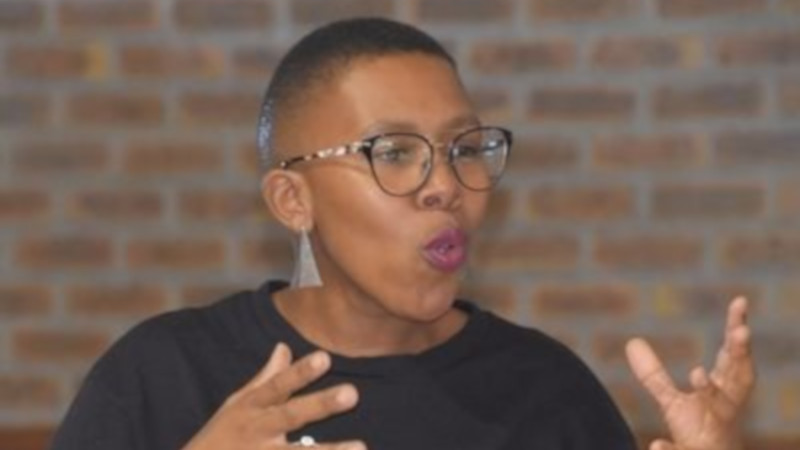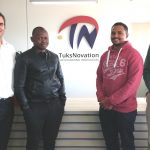We all have them. Those apps we open without thinking. Not because we need anything in particular, but because they feel… safe, in some…
Meet Next Einstein Forum’s 2019-2021 Fellows cohort

The Next Einstein Forum (Nef) has announced its third cohort of fellows comprised of 25 scientists whose research and innovations are contributing to solve Africa’s and the world’s most pressing challenges.
The forum is an initiative of the African Institute for Mathematical Sciences (Aims), with the forum’s work shaped by the belief that the next Einstein will be African.
In addition, it connects science, society and policy around the world to leverage science for human development.
Next Einstein Forum’s 2019-2021 cohort is the first to have almost achieved gender parity with 11 women selected
The forum’s founder and chair Thierry Zomahoun — who is also Aims’ CEO — said in a statement yesterday (5 August) that the cohort is the first to have come close to achieving gender parity, with women fellows numbering 11 of those selected.
“The selected fellows are doing cutting-edge research in renewable energy, nanomaterials and nanotechnology, food security, precision medicine, health systems, climate science and urban planning.
“Also, a first for the fellows cohort is the two social scientists selected in this class. We strongly believe their current and future discoveries will solve global challenges and we are excited to introduce you to them,” said Zomahoun.
Nef Fellows are selected by an International Scientific Programme Committee, using a rigorous process that comprises academic and scientific merit, a strong publication record, patents, awards and a track record of funds independently raised for research.
Fellows are also required to demonstrate the relevance of their research or innovations to humanity’s grand challenges, as well as a passion for raising Africa’s scientific profile and inspiring the next generation of scientific leaders.
The fellows hail from Morocco, Nigeria, South Africa, Mauritius, Niger, Egypt, Kenya, Guinea, Uganda, Cameroon, Ghana, Senegal, Sudan and Namibia. They are:
Badre Abdselam (Morocco): Abdselam is looking to contribute in the design and implementation of regional policies on young scientists’ intentional mobility within Africa to optimise brain circulation.
Ademola Adenle (Nigeria): Adenle is leading research in science and technology policy in addressing sustainable development challenges such as climate change, food insecurity, energy and health innovation in Africa
Fanelwa Ajayi (South Africa): Ajayi (pictured above) is looking to develop various nanoparticles particularly with the use of edible substances, such as fruits and vegetables, and finding additional applications for them
Daniel Akinyele (Nigeria): Akinyele has been immersed in unveiling deeper insights into planning, developing and managing new electrification systems for energy-poor communities using the social-technical-economic-environmental-policy.
Zaheer Allam (Mauritius): Allam is busying investigating the dynamics shaping urban life in the Anthropocene (current geological age) to better build policies enhancing both livability and economic levels in future cities, set to host the majority of humans on earth.
Ibrahim Cissé (Niger): Cissé is interested in developing high-resolution methods of microscopy that go directly inside living cells, and single bio-molecules which could decode human genome from Deoxyribonucleic acid (DNA) into Ribonucleic acid (RNA).
Menattallah Elserafy (Egypt): Elserafy is studying DNA repair mechanisms, working to understand cellular processes which once deciphered will change diagnostics and pave roads for personalised therapies.
Obidimma Ezezika (Nigeria): Ezazika is studying processes that help contribute to developing new industrial models for effectively taking health interventions to scale in sub-Saharan Africa.
Jesse Gitaka (Kenya): Gitaka is working on malaria elimination, prompt diagnosis and management of sub-clinical maternal bacterial infections that eliminate still births, pre-maturity, maternal and newborn sepsis and mortality.
Alpha Keita (Guinea): Keita hopes to develop, together with his team in the Guinea and France, the reservoirs of viruses to better understand the natural history of Ebola virus spread.
Agnes Kiragga (Uganda): Kiragga wants to merge data science and machine learning methods to available “large data” and existing health records to predict and prevent HIV among high-risk groups in Africa.
Eric Lontchi (Cameroon): Lontchi is busy investigating ways of combating obesity and diabetes and is hoping to uncover new insights into the pathogenesis of, and potential treatments for diabetes.
Salome Maswime (South Africa): Maswime is leading a research initiative to scale up the implementation of the perinatal problem identification programme model to four other healthcare systems in Africa.
Blesssing Mbabie (Nigeria): Mbabue is looking to cover the real-time status of antimicrobial resistance and social factors that drive it, discovering natural drugs with high potential inhibitors of antimicrobial resistance mechanism.
Ebele Mogo (Nigeria): Mogo is involved in research that aims to transform societal systems that recognises African contextual realities when designing healthy communities and preventing non-communicable diseases.
Vidushi Neergheen-Bhujun (Mauritius): Neergheen-Bhujun is determined to connect the dots between the role of functional food and cancer prevention.
Marian Nkansah (Ghana): Nkansah is looking ti develop public knowledge on toxic chemicals from unusual places, and the associated risk on local communities, strengthening the intersection of scientific evidence and policy.
Eucharia Nwaichi (Nigeria): Nwaichi is leading research projects that aim to find sustainable and safe sanitation strategies for the remediation of petroleum-impacted environments in the Niger Delta.
Cecil Ouma (Kenya): Ouma is leveraging current research on energy materials and associated technologies, with hope to innovate cheap and small-scale off-grid technologies for rural and peri-urban settlements in Africa.
Dyllon Randall (South Africa): Randall hopes to change modern sanitation systems by focusing on resource recovery rather than mere treatment, moving communities to rethink “waste” as valuable resources.
Samson Rwahwire (Uganda: Rwahwire is using his knowledge of material science and nanotechnology to modify bitumen for road construction utilising green nanoscience as a crosslinker for plastic waste.
Cheikh Sarr (Senegal): Sarr is interested in developing a prototype of a self-driven vehicle, equipped by a lot of sensor networks in order to facilitate the mobility of people with disabilities.
Geoffrey Siwo (Kenya): Siwo hopes to combine artificial intelligence with genetic data and scientific knowledge as a means of accelerating the discovery of fundamental principles that could enable equitable development of precision medicine.
Sara Suliman (Sudan): Suliman is the co-inventor of a four-gene biomarker, investigates why genes involved in electrolyte regulation across mammalian cell membranes might confer susceptibility to the world’s deadliest pathogen: Mycobacterium tuberculosis.
Jessica Thorn (Namibia): Thorn uses social-ecological system modelling and participatory scenario planning to investigate and measure the impact of development corridors in land use, livelihoods, ecosystem, and social coherence.
In March next year the forum will award the fellows at its NEF Global Gathering 2020 in Nairobi under the patronage of Kenyan President Uhuru Kenyatta. You can learn more about the fellows here.
Featured image: Nef 2019-2021 fellow South African Fanelwa Ajayi (Twitter)

